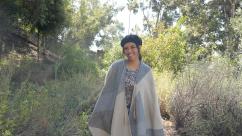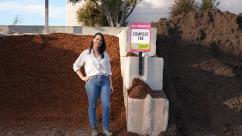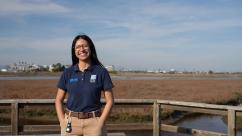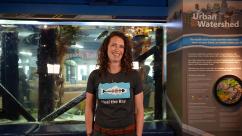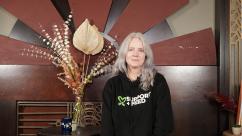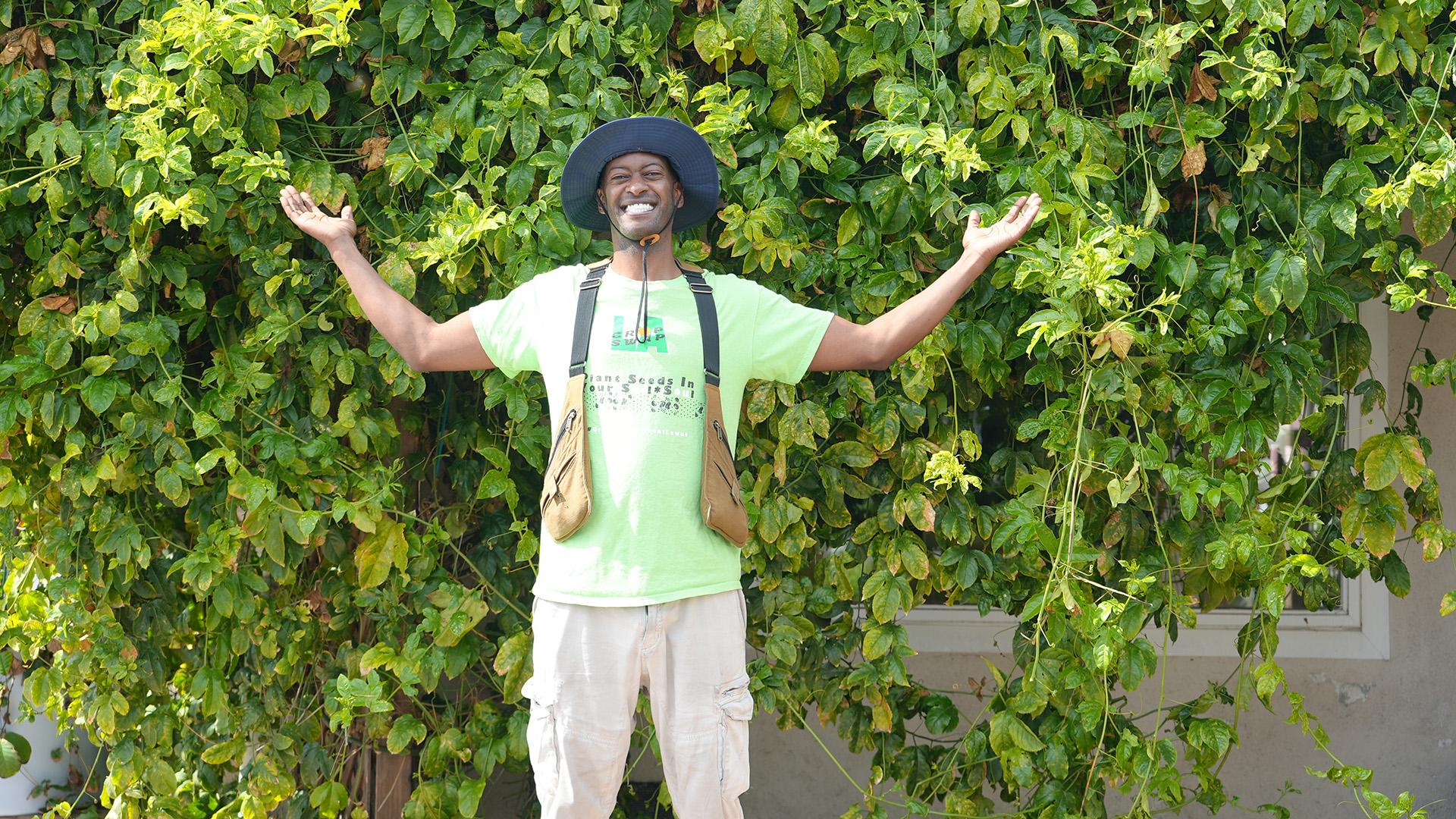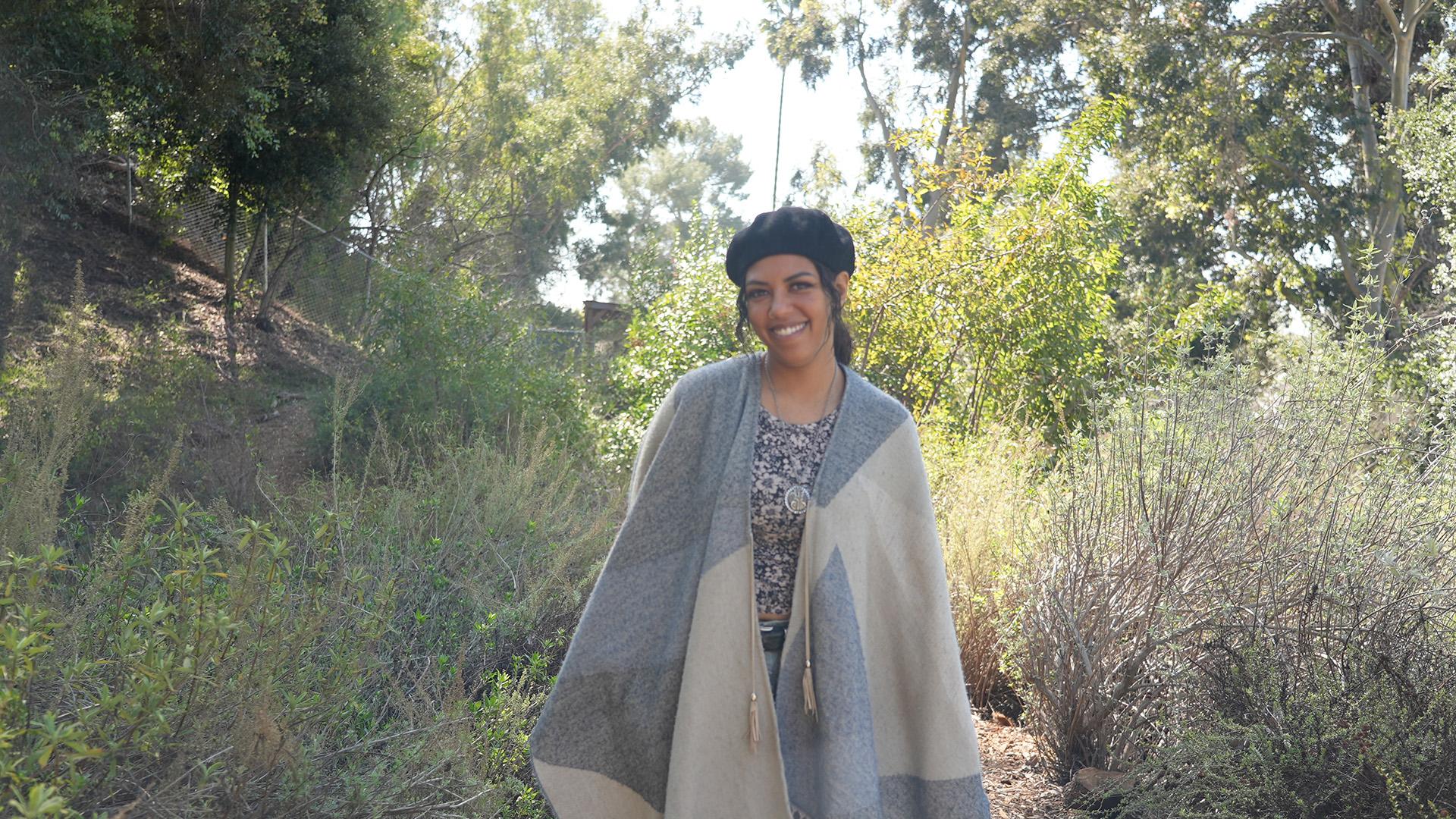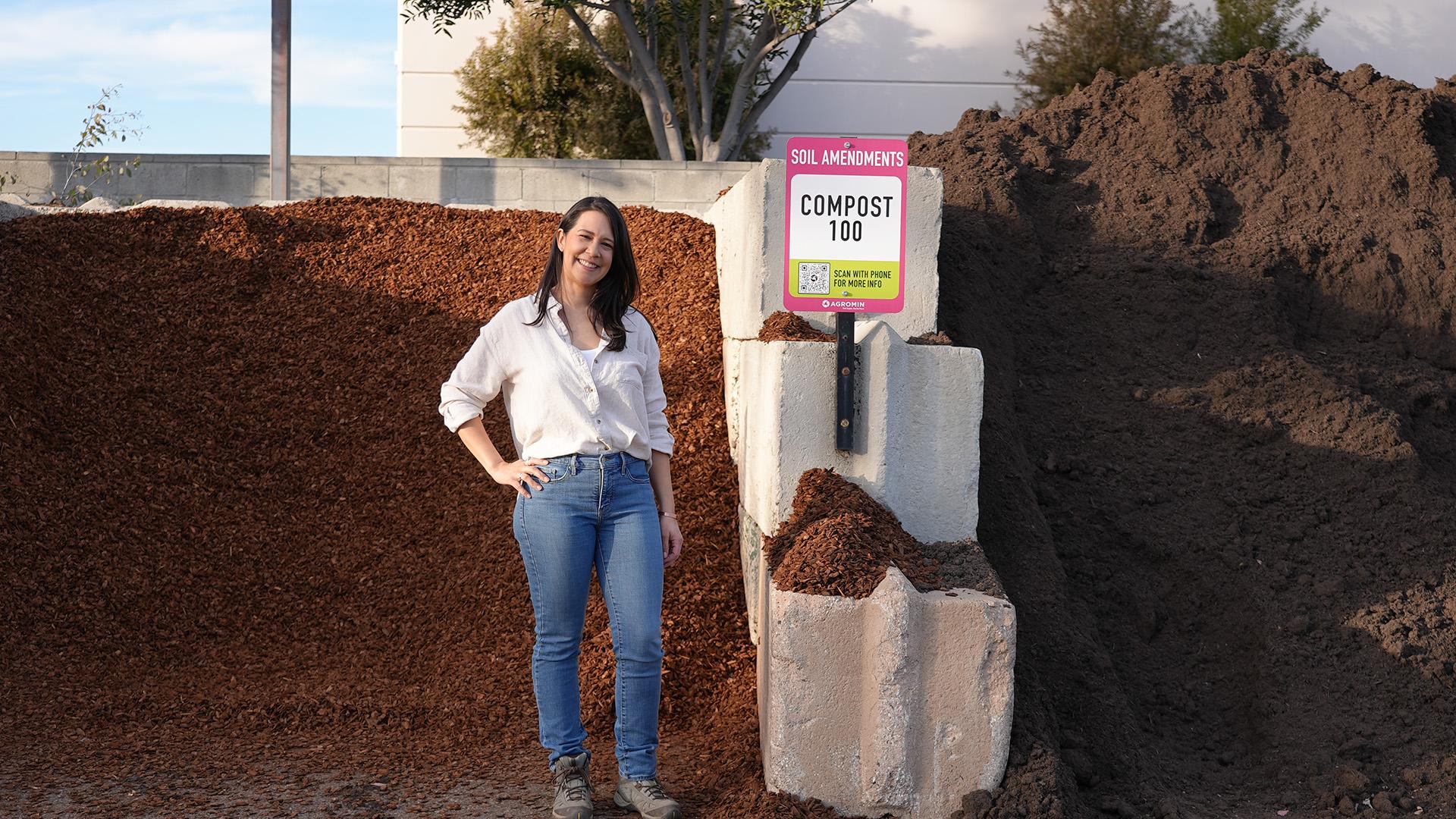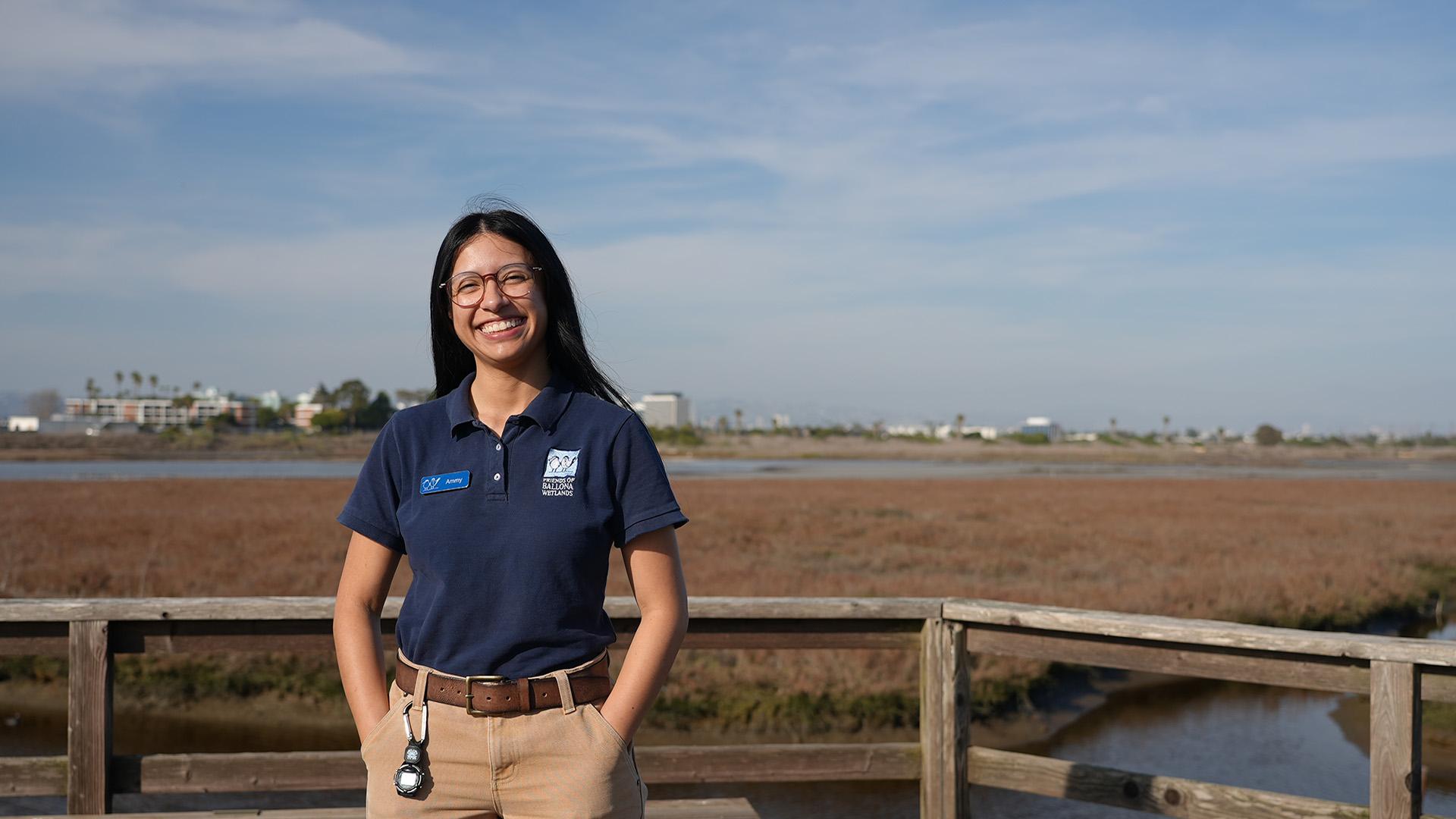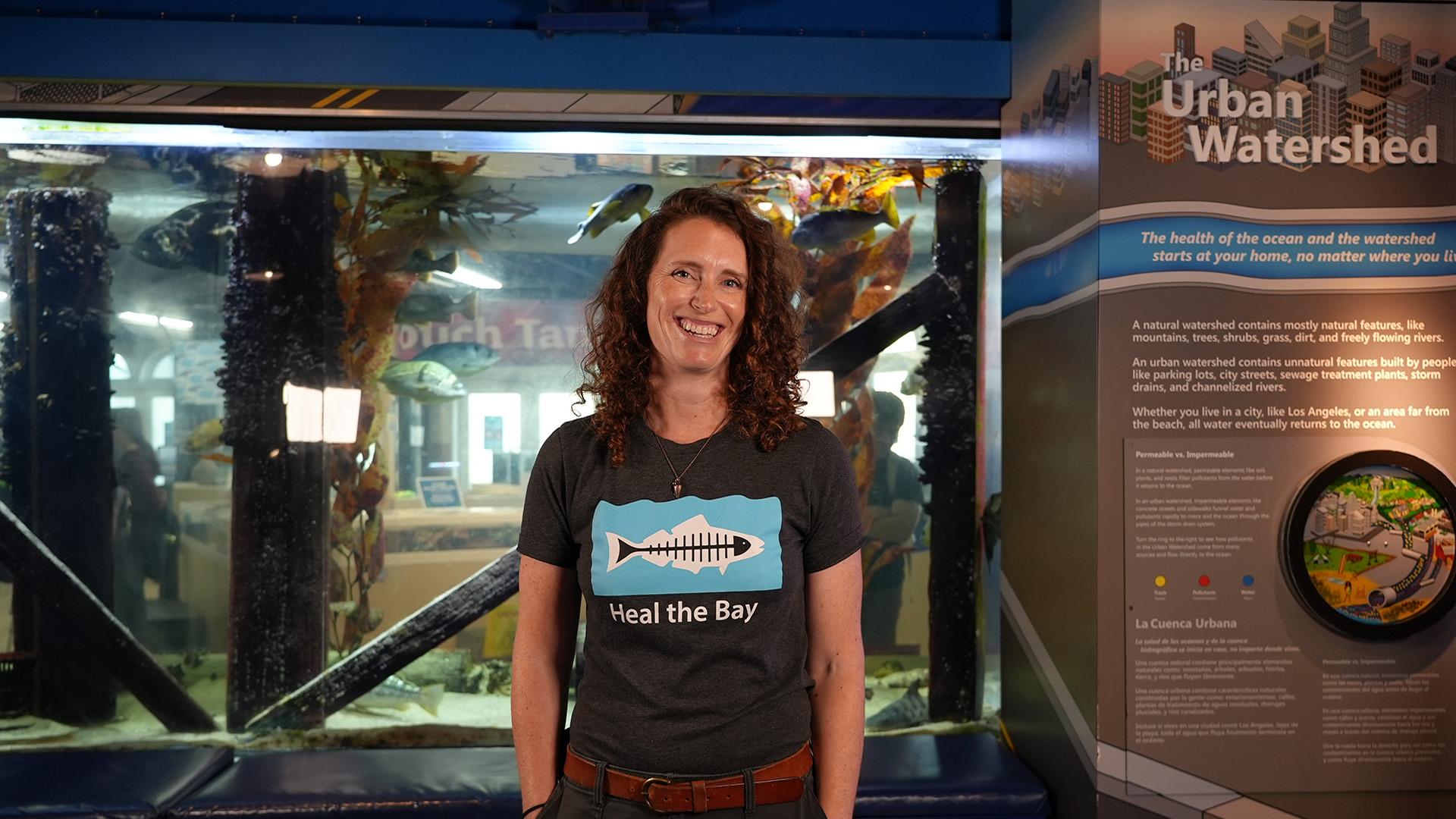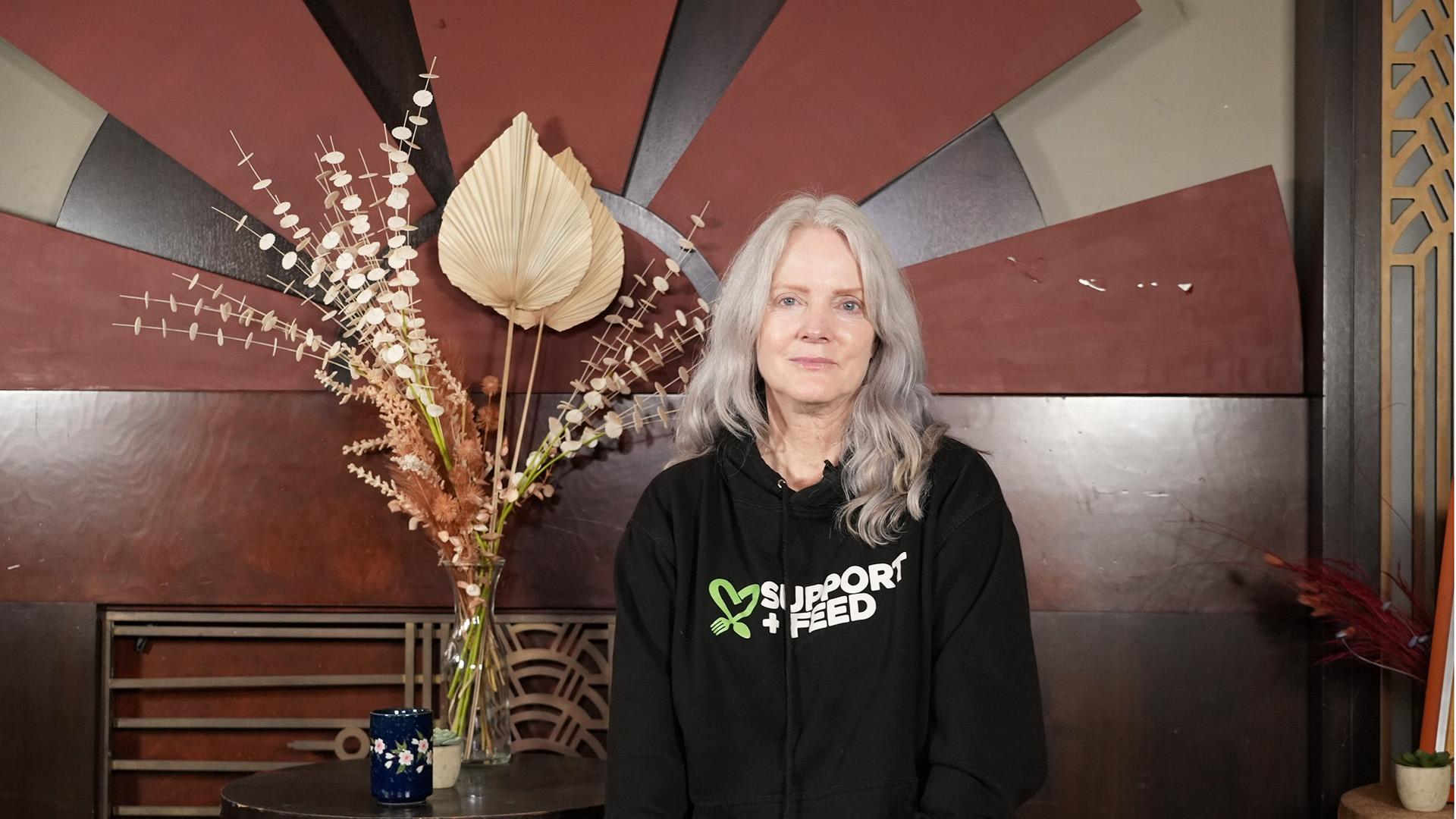Parker Do: Expanding Plant-Based Food Systems Through Education
In this Episode
Parker's Story
Parker Do is a Teaching Fellow with New Roots Institute, a nonprofit organization dedicated to empowering the next generation with knowledge and training to help end factory farming. New Roots Institute has delivered over 10,000 lessons in high school and college classrooms, fostering an understanding of the importance of plant-rich diets and climate change. Their curriculum also builds critical skills such as dynamic discussion, critical thinking, mobilizing others, and engaging in advocacy, specifically to end harmful industrial animal agricultural practices. Parker’s work through New Roots Institute has helped to shift cultural practices at UCLA around embracing plant-rich diets, which also support their broader sustainability goals.
Shifting your diet can be a powerful climate solution – one that can significantly benefit both planetary and personal health. Widespread adoption of plant-based diets could significantly reduce global greenhouse gas emissions and reduce land and water use, while also lowering the risk of heart disease, diabetes, and certain cancers. Another important motivator is the devastating impacts of industrial animal agriculture and factory farming.
Positioning plant-based options as the default, and learning how to make and discuss those choices with confidence and ease, can be a meaningful step toward creating a more just and sustainable world.
Discussion Questions
One of the most important things you can do about climate change is talk about it.
- One of the valuable skills young people develop through lessons with New Roots Institute is how to engage in difficult conversations. Parker emphasizes the importance of approaching these conversations with empathy, cultural awareness, and a focus on solutions. Parker, alongside their friend Joey and others, witnessed the power of these conversations firsthand while advocating for more plant-based options on campus at the University of California, Los Angeles (UCLA). Through student surveys, collaboration with campus groups, and support from external partners like the Humane Society, they engaged in dialogue with UCLA’s head chef and made the case to the administration that increasing plant-based options would help meet the university’s sustainability goals. Their efforts paid off; UCLA has committed to offering 50% plant-based meals to students by 2027. Parker notes, however, that while making a promise is an important first step, accountability is equally critical. Delivering on that commitment will require understanding and addressing emerging barriers, such as cost and student resistance, which makes ongoing empathy and advocacy essential. Can you think of a time when you felt your voice was powerful in a conversation? What made it feel that way? What impact did it have on you, or on someone else?
- Parker is helping lead efforts that show how simple it can be to make plant-based foods the default option. A conference hosted by New Roots Institute at UCLA brought together 23,000 high school students, and food was served with plant-based options as the default. Participants could opt in to meat and dairy, but otherwise, received plant-based food. Remarkably, 70% of attendees stuck with the default option, illustrating the power we have to make subtle shifts that can add up to a big impact. The conference saved an estimated 50,000 gallons of water and prevented 1,000 pounds of CO2 emissions. Even for those who opted out of the plant-based meals, the conference created opportunities for meaningful conversations about the power of individual choices and how shifting cultural norms can drive climate solutions. If you were presented with two meal choices, where a plant-based option was the default, would you opt in to meat and dairy, or stick with the plant-based meal? What choice would you make, and why? Do you think your reasoning could open up a conversation with someone who might choose differently from you?
- Cultural representation through food is important. Parker appreciates that one effective strategy for increasing the adoption of plant-based diets is incorporating culturally diverse cuisines, like Indian and Thai food, that traditionally include flavorful vegan dishes without relying on mock meats. For Parker, these options not only taste delicious but also reflect the diverse cultural communities represented on the UCLA campus. What is a plant-based dish from your culture or community that you enjoy or could imagine sharing with others? What is the importance of having climate-friendly food choices that are also culturally relevant?
- Advocating for a plant-based diet has often required courage and boldness. Reflecting on where that strength comes from, Parker shares that being on the Taekwondo demo team as a child and participating in Model UN in high school helped them find and use their voice. But Parker also describes an especially powerful experience advocating for themselves in the world as a non-binary person. “I changed my name, I changed my pronouns – and part of that was negotiating space for myself in the world,” Parker shares. “I had to be uncomfortable to make myself safe, to make people who are like me safe. And that translates to who I am, but also what I believe in. In this case, it’s a plant-based food system.” What is something you deeply care about? Have you ever used your voice to speak up about its importance, or can you imagine yourself doing so? What would that look or feel like for you?
Learn More
Learn about the solutions in this story:
- Solution Sector: Food, Agriculture, Land & Oceans
- Solutions Clusters: Curb Growing Demands
- Solution: Improve Diets
- For more on all of Project Drawdown’s climate solutions, visit drawdown.org/explorer
- Learn more about Parker’s work at New Roots Institute
Explore Climate Solutions 101, the world's first major educational effort focused solely on climate solutions. This video series combines Project Drawdown’s trusted resources with the expertise of inspiring, scientifically knowledgeable voices from around the world: drawdown.org/climate-solutions-101.
Visit the Yale Program on Climate Change Communication, a resource that shares research, communications strategy, and opinion polling on climate communications.
Take Action
- Subscribe to the Project Drawdown newsletter to receive biweekly insights and inspiration to guide your own climate solutions journey.
- Drawdown Ecochallenge, presented by Ecochallenge.org, is a fun and social way to take measurable action on the top climate solutions. Take the challenge, and see how a few weeks of action add up to a lifetime of change for you and the planet. If you want to take action on climate solutions like Parker, start a challenge today.
- The Drawdown Labs Job Function Action Guides are practical resources that highlight specific, high-impact climate actions employees in common corporate professions can take at work.
- ChangeX connects people with proven ideas for strengthening communities with the resources needed to implement those changes. Explore countless ways to improve your community and help the world reach drawdown.
- Climate Generation's Green Careers for a Changing Climate Instructional Supplement (for Grades 6-8) contains resources to help young people learn about Green STEM Careers—paths that use STEM skills to help reduce the impacts of climate change. Throughout this instructional supplement, students use Project Drawdown resources to make important connections between climate solutions and different careers.
- Solutions Journalism Network highlights the importance of reporting stories of climate solutions in the media to create a more equitable and sustainable world. Visit their Teaching Climate Solutions resource to find curated collections and the latest examples of climate solutions journalism.
- SubjectToClimate (StC) is a nonprofit online connector for K-12 leaders of all subjects to find materials on climate change at no cost. Explore StC’s educator-generated database to connect to Project Drawdown-based climate education resources.
Sign up to receive updates, provide ideas, and tell us how you might share Drawdown’s Neighborhood in your community.



